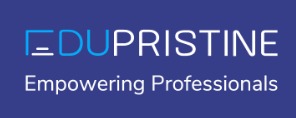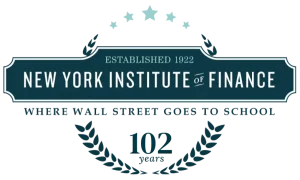If you are a professional aiming to succeed in the field of finance, financial modeling is an indispensable skill that you should learn to improve your career in corporate, investment or entrepreneurship finance. Being a country situated at the crossroads of Africa and the Middle East, at the same time having an increasingly growing economy, Djibouti is witnessing the increased need for financial expertise. Financial modeling courses are designed to help individuals have the capability to generate accurate financial replication of a business or a project, which would help make better decisions and risk management. Financial modeling courses in Djibouti are particularly a great choice for those wanting to increase their chance of rising in sectors such as the fields of banking, logistics, infrastructure, etc.

What is Financial Modeling?
In simple terms, Financial Modeling is the process of creating a model of a real-world financial situation. This is where a company builds a detailed framework to forecast the financial performance of a business, given a set of assumptions based on historical data.
To analyse the financial health of a business and evaluate investment opportunities and strategic decisions of the business, these models are generally used.
The financial model brings together several such factors, such as income statements, balance sheets, and cash flow statements, into a single structure and forecasts future outcomes.
A financial model might make a forecast regarding the impact that altering the market conditions, back pricing strategies, or investment decisions will have on the company’s profitability.
A financial model is a spreadsheet, typically created in Microsoft Excel, that predicts a company’s financial success in the future. The forecast is often based on the company’s past performance and future projections, and it necessitates the preparation of an income statement, balance sheet, cash flow statement, and supporting schedules.
However, financial modeling is important in investment banking as well, along with corporate finance, equity research, and risk management. Businesses, investors, and financial analysts can use it to assess risks, visualise budgets, evaluate the affordability of projects, and make educated financial decisions. Professionals take up financial modeling courses in Djibouti to learn these important skills.
Benefits of Financial Modeling Courses in Djibouti
| Benefits | Provided by the Courses | |
| Diverse Career Options | ✅ | Investment Banking, Equity Research Analyst, Financial Planning and Analysis, Credit Analyst, Corporate Finance, Financial Analyst, Project Finance, Consultancy Firms, Real Estate |
| Better Salary Packages | ✅ | 80,866 CFA (minimum) to 308,443 CFA (highest average) per month |
| Up-to-date Knowledge | ✅ | Financial Forecasting, Valuation, Decision-Making, Budgeting, Capital Allocation, Financial Statement Allocating |
| Practical Skills | ✅ | Work on Live Projects, Case Studies, and Advanced Tools |
| Cost-Effective Learning | ✅ | Budget-friendly, Exclusive High-Quality Learning |
| Artificial Intelligence | ✅ | Master the AI tools to incorporate them into your finance career growth |
| In-House Internships | ✅ | Enhance Practical Skills and Upgrade Portfolio by Working With The Institute’s In-House Team |
| Certification and Credibility | ✅ | Gain industry-recognized and internationally accepted certifications |
| Placement Opportunities | ✅ | Access to placement opportunities through the Dedicated Placement Teams |
Importance of Financial Modeling in Djibouti
Djibouti’s economy is diversifying, and its financial system is progressively growing. Financial modeling is becoming more crucial as a result for professionals in Djibouti.
Strategically positioned at the vertex of global trade routes, and with the country’s growing infrastructure projects, trade activities, and financial services sectors all by necessity requiring a solid grasp of financial management and forecasting, Djibouti desirably imposes the need for rigorous training in these fields amongst its citizens.
Financial modeling courses in Djibouti offer the tools for data-driven decisions for professionals working in the fields of banking, logistics, real estate, and infrastructure.
It lets you analyse new investments, calculate financial risks, and decide on the most important plans for future growth. Financial modeling skills are becoming in demand in the region, and hence capable individuals can gain great importance to advance their careers.
Professionals in Djibouti who master financial modeling can provide more value to their organizations by preparing reliable forecasts, identifying profitable opportunities, and presenting insights into financial performance. Since Djibouti is attracting greater foreign investment and becoming a financial hub, these skills are more important.
Financial modeling is not just for decision-making, it also is the key tool for optimizing resources and reducing costs in financial operations. As more businesses expand and new industries develop, in Djibouti, financial models assist companies to better understand where they stand in terms of their current and future financial positions.
In sectors like logistics, this is especially important because projects need to remain profitable and sustainable, and accurate cost-benefit analyses and cash flow projections are needed.
Expert professionals in modeling financial aspects can point out how cost reduction or revenue generation strategies could be executed by their companies to give them an advantage over other companies in the market.
In addition, the role that Djibouti continues to play in international trade makes it necessary to model financial scenarios to traverse the subtleties of the world market. Financial modeling enables local businesses to consider currency fluctuations, market risks, and the ripple effect of global economic shifts and adapt to remain financially strong.
Financial modeling for employees in roles requiring partnerships across international borders helps answer the question of deal feasibility, determine the ROI of different strategies, and assess the long-term financial impact.
If you aim to pursue a job in corporate finance, consulting, or investment analysis in Djibouti, the ability to create financial models is a skill to learn.
With the government’s push for economic reforms and increased foreign direct investment, professionals with advanced financial modeling skills will be needed to advise on huge-scale infrastructure projects, public-private partnerships, and new ventures.
Nowadays, these skills will not only help you excel in your current role but also open the door to other new career opportunities in Djibouti’s economy.
Career and Scope After Doing Financial Modeling Courses in Djibouti
Since Djibouti’s economy has been growing rapidly, attributed to the strategic location and development strategies, the need for well-trained people in the field of analysing and predicting financial outcomes has dramatically increased.
A financial modeling course teaches the tools to create projections, assess financial risks, and provide insights to support strategic decision-making. Corporate finance is one of the most important career paths to take after completing a financial modeling course.
Financial analysts and corporate finance professionals are needed by large organizations and multinational companies working in Djibouti, especially in logistics, telecommunications, and banking.
The skill is required of these professionals to prepare in detail financial models. Hence, they help business decisions about mergers and acquisitions, capital investment, budgeting, etc.
Modeling so that you can forecast in terms of financial outcomes allows businesses to make informed decisions, which is important in a competitive environment. Additionally, investment banking is another promising career path.
Financial Modelers are key in assisting both local and foreign investors in assessing the viability of projects, and investing in the resource-rich country of Djibouti is becoming ever more popular.
Professionals trained in financial modeling are sought after by investment banks and consulting firms to advise on deal structures, evaluate deals, and create modeling outputs of return on investment (ROI) for port increase expansion, infrastructure development, and real estate ventures.
Financial modeling provides a door through which you can enter careers in project finance, particularly for professionals exposed to large-scale development projects like public infrastructure and energy.
Detailed financial projections are necessary for these sectors to finance from international financial institutions. This domain requires that financial modelers assess projects’ long-term viability, create cash flow models, and identify the risks faced by financing.
Financial modeling moves to entrepreneurship and small businesses. It helps the use of financial modeling skills to create business plans, calculate the financial capability of their ventures, and attract investors.
A strong financial model helps small business owners and startup founders look more attractive to investors and lenders and provides a clear understanding of how their business will grow, how much it will earn, and its financial health.
Finally, financial modeling courses in Djibouti have a vast career potential offered in almost every aspect of corporate finance, investment banking, project finance, and entrepreneurship. With the country’s economy further developing, the need for financial modelers looking to offer strategic insights will continue to rise.
How to Choose the Right Financial Modeling Courses in Djibouti?
To choose the right financial modeling courses in Djibouti, you will need to take into account important things-
1. Course Content: Make sure that whatever financial modeling course you select will provide you with the relevant topics of this domain, which include valuation techniques, risk analysis, financial forecasting, and building models using Excel, etc. Consider looking for a course that provides a solid curriculum to cover your needs for your industry.
2. Accreditation and Recognition: Search to see whether the institute which is offering the course is accredited and whether the certification is approved by relevant financial institutions of Djibouti and internationally. A well-known course can give you a better career.
3. Practical Learning: Financial modeling is a hands-on skill. Pick a path where much of the work is hands-on, through real case studies, projects, or even internships. This will serve you well even when you put these theoretical insights into practice in the workplace.
4. Flexibility and Accessibility: Take into account if the course runs online or in person as you learn. It’s important to have flexibility in whether you do part-time or full-time study so that if you’re doing other things other than study, you still can do that.
5. Student Reviews and Testimonials: Engage ex-students to look for what worked and what did not as regards the course quality and outcomes. A good curriculum and the teaching method used usually score a lot of positive reviews.
6. Post-Course Support: In some institutes, post-course support includes assistance in getting a job, networking or mentorship. That can be a huge advantage in helping you get a job or in furthering your career following the course completion.
From the above analysis of important factors, it is clear that by carefully choosing these factors, you can select the financial modeling courses in Djibouti that match your learning needs and career goals.
List of Top 10 Financial Modeling Courses in Djibouti
The table below lists the top ten financial modeling institutes in Djibouti offering financial modeling courses-
| Institutes | Mode | Module Specific Trainers | Mock Interview |
| IIM SKILLS | Online | ✅ | ✅ |
| Corporate Finance Institute (CFI) | Offline | ❌ | ❌ |
| Wall Street Prep | Offline | ❌ | ❌ |
| Udemy | Online | ❌ | ❌ |
| Coursera | Online | ❌ | ❌ |
| EduPristine | Online & Offline | ❌ | ✅ |
| Henry Harvin | Online | ✅ | ✅ |
| Linkedin Learning | Online | ✅ | ❌ |
| New York Institute of Finance (NYIF) | Online & Offline | ✅ | ❌ |
| Fitch Learning | Online & Offline | ✅ | ✅ |
1. IIM SKILLS

IIM SKILLS is one of the top-ranked financial modeling institutes in Djibouti, offering financial modeling courses. The trainers ensure that everyone benefits from the course equally. It is one of the greatest places to get personalized mentorship.
Get details on Our Advanced Financial Modelling Course here.

The course is regarded as one of the best financial modeling courses in Djibouti since the institute consistently meets the needs of prospective students. People choose IIM SKILLS for their career growth because the trainers genuinely care about their student’s development, both professionally and personally.
| Module 1 – Basic and Advanced Excel (8-10 hours)
Module 2 – Accounting Concepts and Financial Statements (5-7 hours) | Module 3 – Ratio/KPI Analysis (4-6 hours)
Module 4 – Basics of Financial Modeling (4 hours) |
| Module 5 – Different Types of Financial Models (12-15 hours) | • LBO Model
• M&A Model • Private Equity Return Model • 13 Week Cash Flow Model |
| Module 6 – Business Valuation (7-9 hours) | • Relative Valuation – Trading and Transaction Comps
• DCF Valuation • NAV Approach for Valuation |
Highlights of the Financial Modeling Master Course
- Internationally accredited
- 1 months internship
- Tools covered – Excel, Python, GenAI, and PowerBI
- Certifications from IIM SKILLS and Capstone Projects
- Money back guarantee
Check out IIM SKILLS Alumni here
Working on numerous practical assignments will allow you to develop a variety of soft skills as well as financial modeling skills.
| Course | Duration | Fees |
| Financial Modeling Master Course: Self-Paced Course | 4 months | DJF 74843.36 |
| Financial Modeling Master Course: Job Assist Program | 4 months | DJF 124905.80 |
| Financial Modeling Master Course: Job Guarantee Program | 4 months | DJF 375218.03
|
Contact Information:
Phone: +91 9580740740
Email: [email protected]
Website: iimskills.com
Here is an extensive guide to the top-ranked Financial Modeling Courses in Auckland. Read and explore in-depth.
2. Corporate Finance Institute (CFI)

The Corporate Finance Institute (CFI) is one of the leading financial modeling institutes in Djibouti that provides the globally recognised FMVA certification.
Their FMVA – Financial Modeling & Valuation Analyst program is a very detailed financial modeling course that is valuable to work professionals in Djibouti.
Some areas of operation of this course are the knowledge of the optimisation process, the evaluation process, the corporate financing process, and Excel.
Learners receive more than 24 courses and templates, realistic case studies, and demonstrated executives. It is especially useful for people who want to improve their financial analysis capabilities and includes novices and experienced analysts.
| Course | Duration | Fees |
| Financial Modeling & Valuation Analyst (FMVA) Certification | Self-Paced | DJF 88,848 |
Your search for the best Financial Modeling Courses in Dubai ends here. Do check them out.

3. Wall Street Prep

Wall Street Prep is finance training for industry professionals developed by investment bankers. The Premium Financial Modeling Package deals with Practical financial modeling skills that are vital in investment banking and private equity positions.
The course includes topics like mergers and acquisitions, leveraged buyouts, and financial statement analysis, a perfect course for all finance professionals in Djibouti.
Learners gain lifetime access to these courses and all accompanying study material for constructing models from scratch. It is considered one of the well-known financial modeling institutes in Djibouti.
| Course | Duration | Fees |
| Financial and Valuation Modeling Certification Program | 46 Hours | DJF 88,671 |
Eager to know about the extensive Financial Modeling Courses in London with placement support? Here is a guide.
4. Udemy

Udemy’s Financial modeling courses in Djibouti provide an introduction to financial courses and the building blocks for constructing company financial statements and performing straightforward value analysis using Excel.
Due to its simple structure and the possibility to access all materials starting from scratch for an unlimited time, it will be useful for those who start their journey in one of the leading financial modeling institutes in Djibouti.
Have a look at these industry-specific Financial Modeling Courses in Kenya and master the in-demand skills, tools, and techniques.

5. Coursera

For those professionals in Djibouti who want to have a complete grasp of how financial models are put together, this is the perfect program offered by one of the well-known financial modeling institutes in Djibouti.
Models of decision-making, quantitative modeling and analysis of financial statements are covered. Interactive quizzes, assignments and flexible deadline rounds make it accessible for people juggling other commitments.
| Course | Duration | Fees |
| Business and Financial Modeling | Self-paced | DJF 10,484/month |
| Finance and Quantitative Modeling for Analysts | Self-paced | DJF 10,484/ month |
Here’s a guide to the top Financial Modeling Courses in Malaysia with Placement Assistance.

6. EduPristine

If you are looking for financial modeling courses in Djibouti, EduPristine is a leading name for finance and accounting education. It is useful to finance professionals who want to specialise in advanced financial modeling techniques.
The course focuses on financial statement modeling, valuation and discounted cash flow (DCF) analysis, all in Excel.
EduPristine is one of the best financial modeling institutes in Djibouti that is practical and is based on projects with an emphasis on both live online and classroom training options. There is also post-training job assistance and placement support.
| Course | Duration | Fees |
| Financial Modeling Course | 100 Hours | Not Available |
Find out the best Financial Modeling Courses in Melbourne for your career enhancement.
7. LinkedIn Learning

For those located in Djibouti, you can follow a concise Financial Modeling Foundations course at LinkedIn Learning and learn all the basics in no time.
This is a self-paced course and one of the best financial modeling institutes in Djibouti, which includes important financial modeling techniques and Excel functions used in financial analysis.
The course also offers lifetime access and makes it a great option for busy professionals who wish to take an online course that helps them develop additional skills quickly.
| Course | Duration | Fees |
| Financial Modeling and Forecasting Financial Statements | Self-Paced | DJF 5,153/month |
Have a look at these industry-specific Financial Modeling Courses in Singapore and master the in-demand skills, tools, and techniques.

8. New York Institute of Finance (NYIF)

Professionals can pursue the well-respected Financial Modeling Professional Certificate from the New York Institute of Finance (NYIF) globally. It is considered one of the leading financial modeling institutes in Djibouti.
They offer a program meant for professionals in Djibouti and includes financial statement modeling, corporate finance, and valuation.
NYIF provides course materials, practical case studies and exercises. Flexible learning and expert support is available to students throughout the course.
| Course | Duration | Fees |
| Introduction to Financial Modeling | 2 Days | DJF 2,57,483 |
| Financial Modeling Professional Certificate | 5 Days | DJF 6,92,843 |
Here’s a guide to the top Financial Modeling Courses in Sydney with Placement Assistance.
9. Fitch Learning
![]()
Financial Modeling Courses in Djibouti by Fitch Learning is an excellent choice for professionals and students alike. They are a global leader in professional finance education and are considered one of the best financial modeling institutes in Djibouti.
This course is perfect for a finance professional residing in Djibouti who wants to climb up the career ladder in the finance domain.
It discusses financial statement modeling, scenario analysis, and valuation techniques using Excel. Upon completion of the course, Fitch Learning offers post-course support and certification so students continue to be updated with industry trends and tools.
| Course | Duration | Fees |
| Advanced Certificate in Financial Modeling | 5 Days | DJF 7,82,377 |
| Best Practice Financial Modeling | 2 Days | DJF 3,90,612 |
| Fundamentals of Financial Modeling | 1 Day | DJF 2,40,820 |
Find out the best Financial Modeling Courses in Dublin for your career enhancement.

10. Henry Harvin

If you’re a student or a finance professional looking to become an expert in advanced Excel skills and financial modeling techniques, then Henry Harvin gives you a robust Financial Modeling Course.
The training consists of 70 hours of instructor-led training in important topics such as valuation, financial statements, scenario analysis, etc.
Their financial modeling courses in Djibouti will be very beneficial for learners as they will get lifetime access to recorded sessions and membership perks. The best part about this course is it is a very flexible and very thorough financial modeling course.
| Course | Duration | Fees |
| Financial Modeling and Valuation Analyst Certification Course | 70 Hours | DJF 62,320 |
Explore the best Financial Modeling Courses in Toronto for your career enhancement!
Frequently Asked Questions
-
1. Why do we need financial modeling?
The process of financial modeling is a way to mathematically represent the performance of a company so that it can foretell future outcomes. It helps businesses to measure financial risks, make strategic decisions, and evaluate investment opportunities. Financial modeling is of the most use in countries with growing industries like logistics, banking and infrastructure.
-
2. What are the career opportunities after completing financial modeling courses in Djibouti?
After taking a financial modeling course, professionals in Djibouti have different career opportunities like roles in corporate finance, investment banking, project finance and entrepreneurship. In sectors ranging from logistics, banking, telecommunications and infrastructure, financial expertise is required for decision-making, project evaluation and the generation of opportunities.
-
3. What is the application of financial modeling in project finance?
Financial modeling is used in project finance to project cash flows, assess financial viability and manage risks inherent to large-scale projects such as the development of infrastructure and energy. Financial modelers fill a vital role in obtaining international financial institutions funding by being able to provide excellent financial projections and evaluating project sustainability.
-
4. Can financial modeling skills be useful to entrepreneurs and small business owners in Djibouti?
Financial modeling is worth to a business owner or an entrepreneur in Djibouti. It serves to do business plans, evaluate financial sustainability, and attract investors. Entrepreneurs armed with strong financial models can make informed decisions, explore where they want to grow, and secure funding to do so. For anyone interested in these skills, a great place to start is by taking one of the financial modeling courses in Djibouti.
-
5. Do investment banking financial modelers have options in Djibouti?
Whenever Djibouti becomes a great target for foreign investments, financial modeling must be done. Therefore, there is a high demand for people to be recruited as financial modelers in investment banking as well. These professionals aid in determining the viability of investment projects, making financial forecasts, and steering decision-making regarding mergers and acquisitions and capital investments.
Check out IIM SKILLS for more professional courses and programs to help you find your career path.
Conclusion
While Djibouti is becoming greater as a trade and investment hub, the demand for capable financial professionals continues to grow. Financial modeling is a needful enterprise for the performance evaluation of a business, making decisions in the investment sector, and managing risks.
With future-oriented financial modeling courses in Djibouti, professionals and entrepreneurs can improve their success in corporate finance, expand their businesses, and contribute immensely towards large-scale infrastructure projects. Not only are these courses essential, but they lead the future to a promising and lucrative career in finance.

